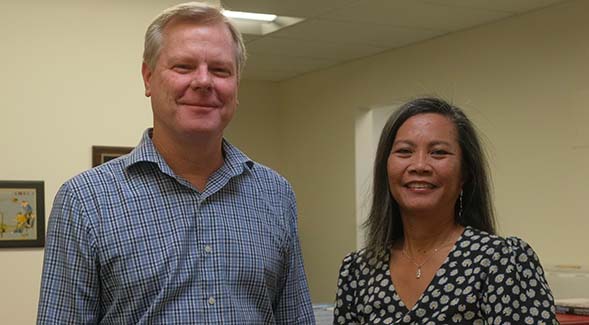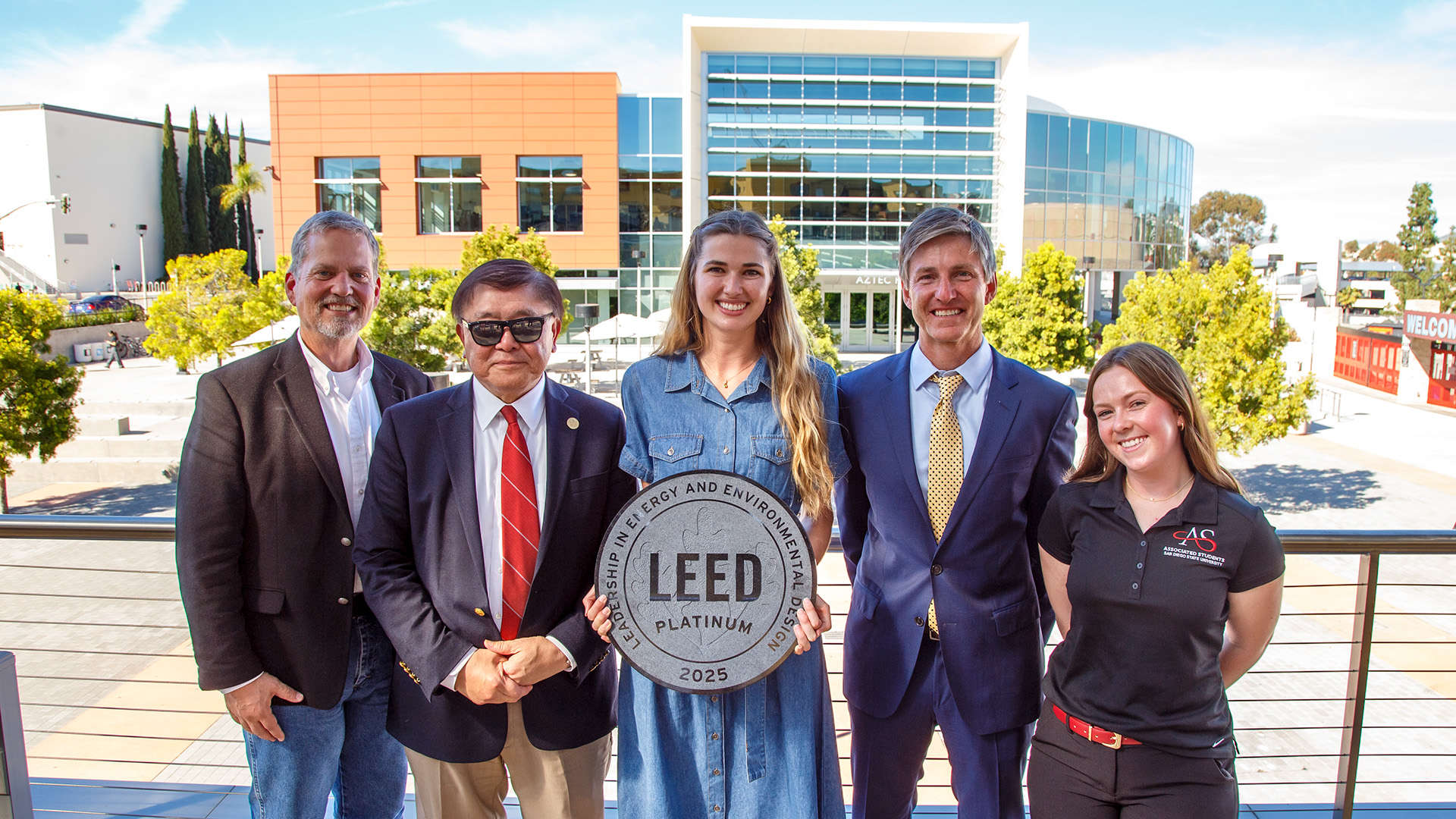SDSU Team Leads National Effort to Advance Equity in Vocational Rehabilitation
Rehabilitation counseling faculty members Mark Tucker and Mari Guillermo received a $4.5 million federal grant to work with agencies in 10 states.

During the 1990s, San Diego State University professor emeritus Bobbie Atkins led the Rehabilitation Cultural Diversity Initiative, a nationwide effort to address inequities in services and outcomes experienced by diverse populations in vocational rehabilitation — a field devoted to connecting disabled individuals with employment and educational opportunities.
Now, two of Atkins’ former graduate students are carrying that work forward.
Associate professor Mark Tucker (’99) and assistant professor Mari Guillermo (’91) from SDSU’s Department of Administration, Rehabilitation and Postsecondary Education have been awarded $4.5 million from the U.S. Department of Education, Rehabilitation Services Administration (RSA) to fund project RISE-UP, which stands for Rehabilitation Improvements in Services and Employment for Underserved Populations.
“Dr. Atkins’ research was some of the first to demonstrate disparities in rehab services outcomes for African American clients,” said Tucker. “Then folks started kind of peeling back the onion and examining outcomes for other groups. She set the ball rolling and she faced a lot of opposition to her research.”
“This project feels like picking up a thread that she helped get started.”
Reversing patterns of inequity
When Congress passed the Rehabilitation Act Amendments of 1992, emphasizing employment as the primary goal of rehabilitation, the law stated “Patterns of inequitable treatment of minorities have been documented in all major junctures of the vocational rehabilitation process.”
Three decades later, those patterns persist.
One way inequities have historically manifested themselves is via gatekeeping: agencies knowingly or unknowingly keeping certain services from certain populations.
As part of the RISE-UP project, Tucker and Guillermo will work with vocational rehabilitation agencies in 10 states over the next five years, providing training and technical assistance to help them produce better outcomes for diverse clients. The SDSU team is expanding that definition to include not only clients from racially-minoritized communities, but LGBTQIA+ clients and other identities.
“Especially when we think about the intersectionality of identities, you cannot help but include other populations in this,” Guillermo said.
Participating agencies will also learn to leverage the data they already collect to monitor their own progress and identify where they might be falling short.
“We want to get these agencies to eventually pay attention to this on their own,” Tucker said. “We have some experts associated with this project that are going to be key to helping the agencies to figure out how to monitor, what to do in order to move the needle on improving services and — farther out — how to track outcomes of the people they serve in terms of employment and educational attainment.”
Partners on the project include George Washington University and the Council of State Administrators of Vocational Rehabilitation.
The 10 participating vocational rehabilitation counseling agencies have not been officially selected, but Tucker said they received strong nationwide interest, including from some of the nation’s most populous states. That includes agencies from some states that have introduced bills restricting diversity, equity and inclusion initiatives — laws that the SDSU team is prepared to navigate delicately.
“This can’t be one-size fits all,” Guillermo said. "That’s why self-assessment is really important. Everybody is going to have a different starting point.”
Far-reaching benefits
Ultimately, Tucker and Guillermo intend for RISE-UP to impact far more than the 10 agencies they’re working with initially. They hope the materials and interventions they develop will ultimately spread to the more than 80 vocational rehabilitation agencies that serve clients across the U.S.
“Really, our goal is system-wide change so that we no longer see those patterns of inequitable treatment,” Guillermo said. “I think now we have the terminology and the courage to lean into those difficult discussions around where we are falling short when it comes to marginalized populations, more so than we were able to in 1992."
Tucker and Guillermo are both graduates of SDSU’s rehabilitation counseling master’s program, which is ranked No. 3 in the nation by U.S. News & World Report. It’s a legacy of excellence forged by trailblazers their mentor Atkins, whose seminal research served as the foundation for the Rehabilitation Act of 1992 mandate to build capacity in the public rehabilitation system to better serve historically marginalized populations.
"It's every professor's dream that their legacy is continued,” Atkins said. “And I am delighted because these graduates are doing work that they will be successful in. I know that because they were my students. The two of them in combination are truly dynamite.
“I think RISE-UP is an excellent opportunity to continue and expand services to individuals from underserved populations with disabilities.”



